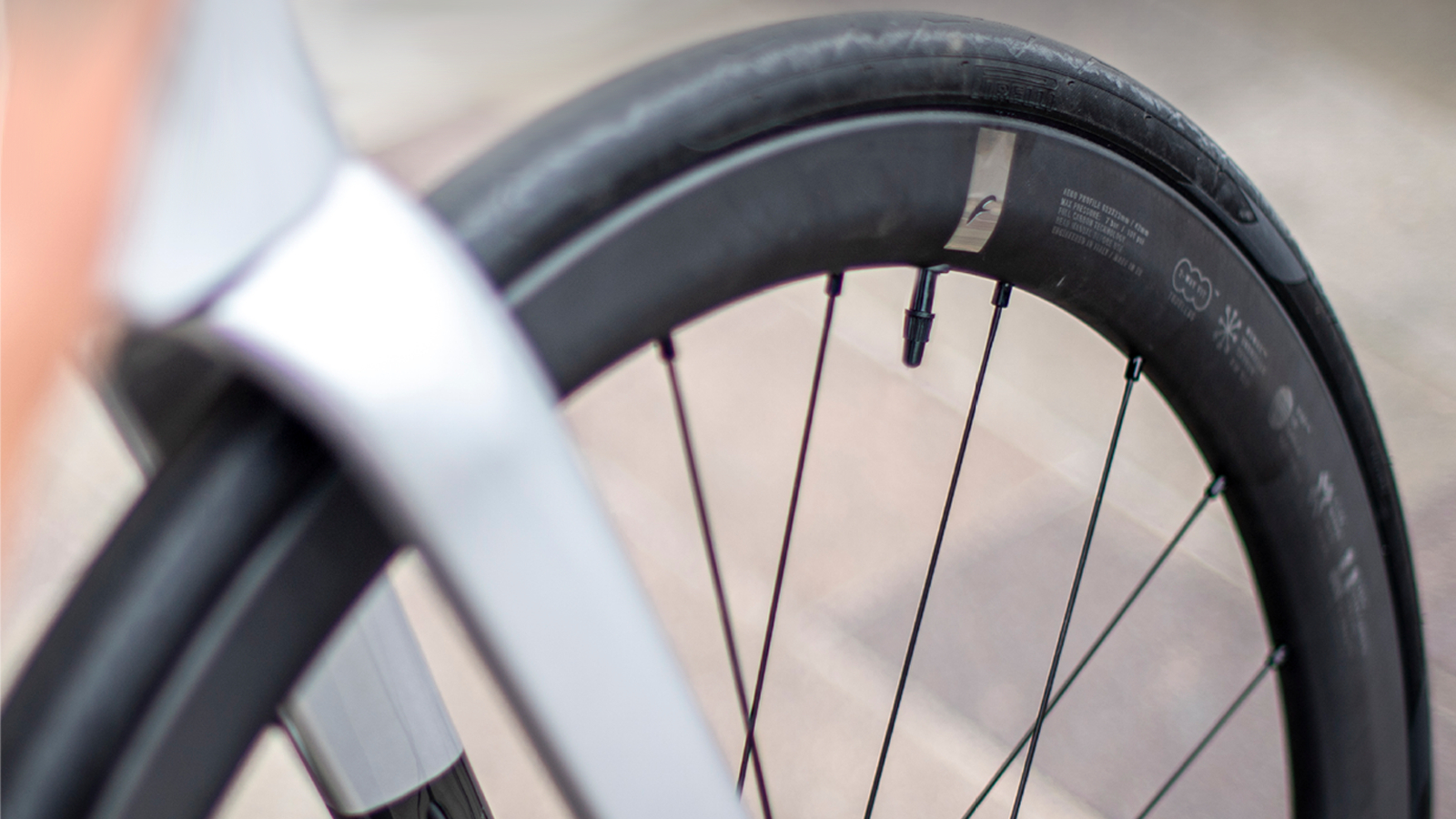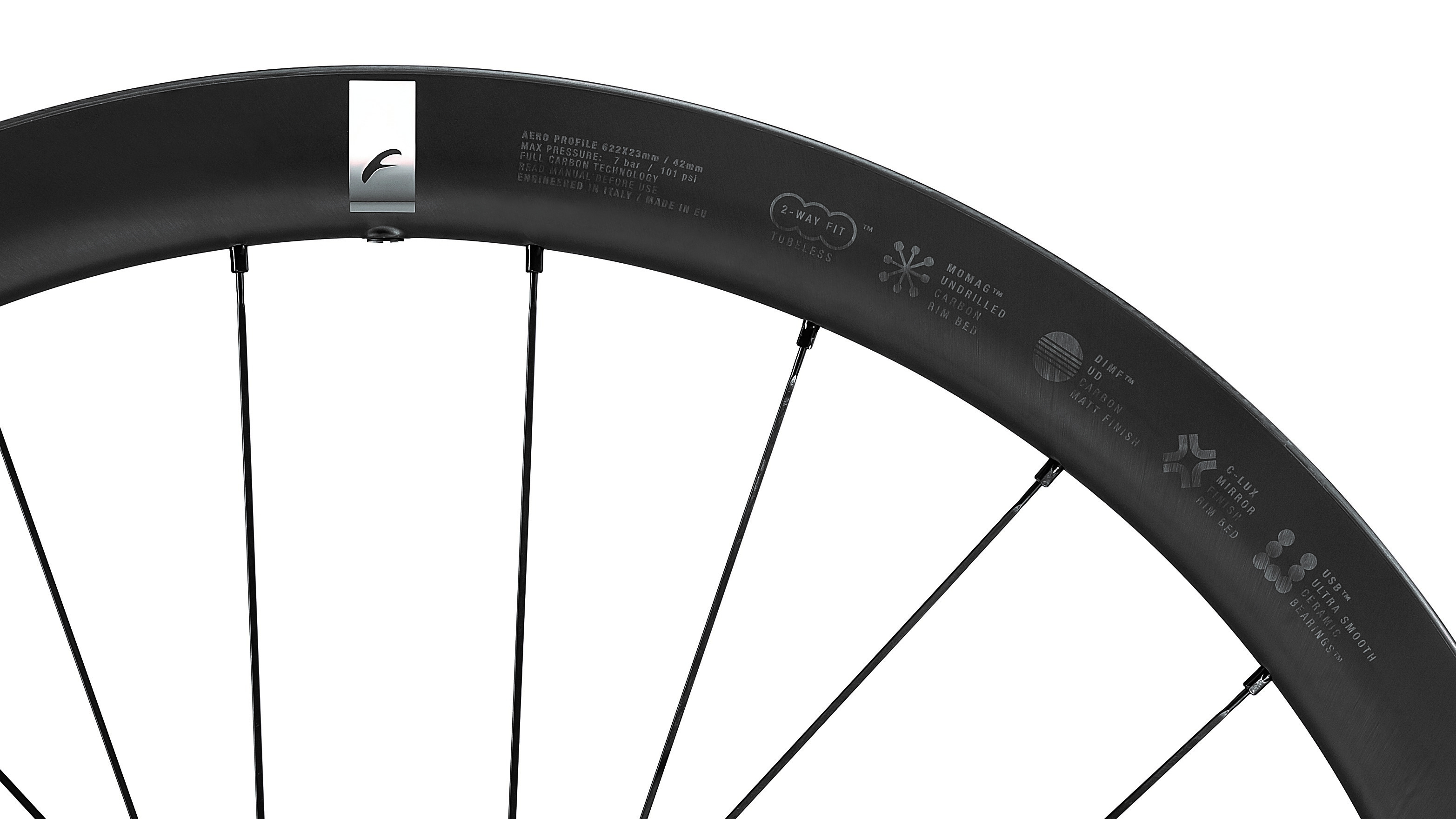Fulcrum rebrands with new, deeper, lighter Speed 57 and 42 wheelsets
Fulcrum ditches the red accents and large logos in favour of subtle stylish silver

Italian wheel manufacturer Fulcrum has today announced an update to its best road bike wheels, overhauling its mid-depth 'Speed' race wheelsets with the launch of the Speed 57 and Speed 42 models.
Replacing the existing Speed 55 and Speed 40 respectively, this new pair of wheelsets are 2mm deeper than their respective predecessors, at 57mm and 42mm, as reflected by their model names. They are also 4mm wider internally, and 2.8mm wider externally, and Fulcrum says they're lighter, more responsive, with better handling too.
They've also been treated to a visual makeover, with the large Fulcrum wordmark replaced with a subtle laser-etched logo, and the red accents replaced with a single small chrome silver tab at the hub, making them much less likely to clash with your frame's paintwork.

The weight drop sees the 42mm wheelset tip the scales at 1,410g, and the 57mm weigh 1,495g. This is aided - if not entirely facilitated - by a redesign of the hubs, which Fulcrum says now have a 10% smaller central body, 40% smaller flanges, as well as a new 36-tooth ratchet drive with a 10-degree pick up.
The handling, which Fulcrum says is improved to the tune of 7% for the Speed 42 and 17% for the Speed 55, is quantified based on a measure of the energy dissipated when changing the direction of the wheel on a testing jig. The more energy taken to turn the wheel, the slower or harder it is, which Fulcrum believes is correlative to on-the-bike handling.

A similar test, which measured the energy used to make the wheel spin from a standing start, calculated reactivity. Again, less is better, with the Speed 42 taking 3% less energy than its predecessor, and the Speed 57 being 10% lower.
Leaning on Fulcrum's existing technology somewhat, the new wheels use 'Two-way technology,' meaning they can handle both tubeless and clincher tyres. Their bead is hooked, so should have no tyre compatibility issues, while the fully-sealed rim bed replaces spoke-hole-convenience with improved air retention and added strength. Getting around that lack of spoke holes is another of Fulcrum's technologies; MoMag, which allows wheel builders to use a magnet to drag the internal nipple around the rim and into place inside the plastic support that helps avoid corrosion.
The latest race content, interviews, features, reviews and expert buying guides, direct to your inbox!

The hubs are built using 'USB' (Ultra Smooth Bearings) ceramic cup-and-cone bearings, in what is a departure from many brands' switch to cartridge bearings in recent years. They are laced to the rim using bladed spokes, 24 of them front and rear, which are designed not to touch each other to improve strength and remove the possibility of annoying creaks.
Such is the way these days, these are disc brake and thru-axle compatible only. They will be sold as pairs, as well as a mixed pair with the 57mm rear and 42mm front.
Wheelsets are available for purchase immediately via Fulcrum dealers. Pricing for Shimano and Campagnolo freehubs are set at $2692.00 / €2265.00, while SRAM XDR are $2703.00 / €2264.00. UK pricing is more simple, with all three freehub options priced at £1,999.99.

Josh is Associate Editor of Cyclingnews – leading our content on the best bikes, kit and the latest breaking tech stories from the pro peloton. He has been with us since the summer of 2019 and throughout that time he's covered everything from buyer's guides and deals to the latest tech news and reviews.
On the bike, Josh has been riding and racing for over 15 years. He started out racing cross country in his teens back when 26-inch wheels and triple chainsets were still mainstream, but he found favour in road racing in his early 20s, racing at a local and national level for Somerset-based Team Tor 2000. These days he rides indoors for convenience and fitness, and outdoors for fun on road, gravel, 'cross and cross-country bikes, the latter usually with his two dogs in tow.